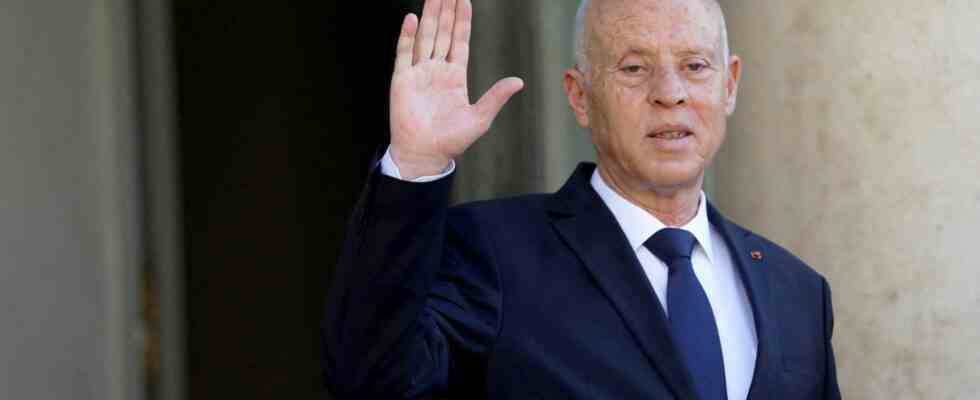Status: 07/25/2022 2:30 p.m
Tunisia’s President Saied puts a new constitution to the vote that would give him comprehensive rights. Is the President, who has already ousted government and parliament, on his way to becoming a dictator?
Late one evening in October 2019 it was clear: Tunisia’s new top man is called Kais Saied. At the press conference, the then 61-year-old, tall man described the result as a small revolution within the rule of law. Just two years later, in July 2021, Kais Saied dissolves parliament, governs by decree for months and appoints a new government with no visible power.
Some in Tunisia say he hasn’t changed since the election campaign. After all, Saied said back then: The existing political system does not suit Tunisia. He sees political parties as an obsolete model and predicts that in the coming years or decades “the people will organize themselves differently”. The “main actor” is civil society.
Saied’s plan when he took office: decentralize the country. He proposes a kind of Federal Council: Tunisia’s regions should also be represented at national level, with equal rights in relation to parliament.
Successful with sober advertising
Saied is an unremarkable man. That’s exactly how he campaigned in 2019: sober and unadorned. The constitutional lawyer is an outsider in the world of Tunisian politicians and hasn’t been a minister umpteen times. This is exactly what catapulted him to the top of the 2019 presidential election.
Saied presented himself as independent of established power circles, which Tunisians are suspicious of. “I’ve always been independent and I’ll stay that way,” he said, promising not to aspire to a party career and not to look for “a political post”: “For me, it’s a duty to my homeland, Tunisia.”
Inaccessible in office
At that time, Saied was still close to the people and spoke of a new relationship of trust between the elected and the voters. As president, he is less accessible – he communicates as if from an ivory tower, and when he does, then via social media, preferably late in the evening or at night.
Saied remains popular nonetheless. More than two-thirds of those eligible to vote voted for him in 2019 – especially young people between the ages of 18 and 25 and academics. Saied is considered conservative, says lawyer Mehdi Elleuch, an analyst at Legal Agenda, an independent research center founded in Lebanon.
Clear references to religion
Saied has spoken out against the abolition of the death penalty, and he wants to continue criminalizing homosexuality. That, emphasizes Elleuch, is also reflected in his constitutional referendum: In Saied’s constitutional project, there are “many more references to religion and fewer guarantees of a secular state than in the 2014 constitution.” Saied is “at least as conservative as the Islamic conservative Ennahda party”. Saied had thrown them out of the government in 2021.
A beneficiary of many crises
Elleuch says Tunisia’s multiple crises have played into Saied’s hands: the fragmented and indecisive parliament, the corona crisis, mistrust of the power elite. The state of emergency allowed him to start his state restructuring project.
Many see the appointment of the new head of government, Nejla Romdhane – after all, the first woman to head the government of an Arab state – as an attempt to appease European partners. Speaking publicly and making decisions – Tunisia’s head of government leaves that to the president.
Elleuch sees the result as devastating for democracy in the country: Saied’s new constitution should give the president far-reaching powers, an authoritarian system. Tunisia has a president who “has all the power, without responsibility and without real control,” says the expert; a president “who can refuse elections even at the end of his term”. And the Tunisians could not do anything about it because there was no institutional mechanism in Saied’s new constitution that could stop him.
A birth defect of the revolution
In Saied’s state restructuring, many also see a birth defect in the young Tunisian democracy after the revolution. More than ten years after the so-called Arab Spring, there is still no constitutional court that could stop the president.
Nevertheless: So far, Saied is still popular. The political elite, notorious for being corrupt, declining purchasing power and high unemployment make it the last lifeline for many. His constitutional referendum is expected to go through, albeit with a low turnout.

